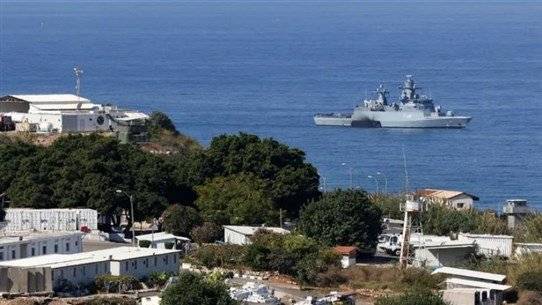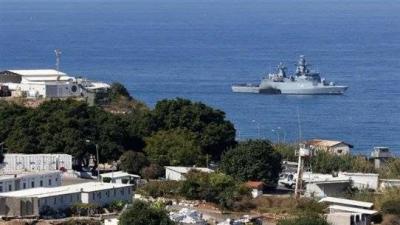Stagnation continues to dominate the border demarcation issue between Lebanon and Israel. This impasse, accompanied by numerous leaks and data that are difficult to verify, is unlikely to change before the return of American mediator Amos Hochstein to the region, which is rumored to be nearing and expected in the coming days. According to diplomatic sources speaking to "Al-Markaziah," the slowdown in the file is mainly due to Israel entering the orbit of upcoming elections, where "demarcation" is prominently featured in the political competition among Israeli forces in preparation for the elections. However, they clarify that regardless of which entities will hold the reins of power in Tel Aviv after the elections, all of them, in public or in secret, wish to reach an agreement on border demarcation with Beirut, as there is significant economic and commercial benefit for the Hebrew entity.
During this waiting period, Hezbollah continues to raise tensions and threaten war and escalation. On Friday, party Secretary-General Sayyed Hassan Nasrallah stated: "Regardless of the fate of the nuclear agreement and just days away from the important opportunity for oil extraction and the Karish field and border demarcation, if what the Lebanese state wants is presented, we are headed for calm, but if Lebanon does not receive its entitlements as demanded by the state, we are headed for escalation." He called for attention to be focused on the Karish field, the Lebanese borders, and the American mediator, noting that "the eyes are on the American mediator who has so far been wasting time, and his time has run out."
For his part, the general legal representative of Sayyed Ali Khamenei in Lebanon, Sheikh Muhammad Yazbek, stated in his sermon at the Sayyida Khawla shrine in Baalbek on Friday, "We are nearing the end of August, and it is not permissible to waste the opportunity by demanding that the Americans hurry to demarcate the borders and take our full rights from a position of strength, not weakness. The slogan of Lebanon's strength through weakness has passed; rather, Lebanon's strength comes from its army, its people, and its resistance."
However, the party is well aware, according to the sources, that reaching an agreement is merely a matter of time, and that Tel Aviv wants to reach an understanding and desires it at the earliest opportunity. His knowledge of this truth makes his ongoing escalation inevitably linked to two purposes: either helping Iran in its nuclear negotiations, despite Nasrallah's denial, or bolstering his own popularity in the Shiite arena, to tell his constituents after reaching a demarcation agreement that it would not have happened without the resistance.
In any case, September is drawing near. If an agreement is reached, it is beneficial. If not, it will be a real test of the party's credibility, which has set deadlines and raised expectations. Here, the dynamics of Iranian-American relations must be monitored: if relations are good and favorable to Tehran's interests, and if the party does not carry out its threats, it will prove that it operates according to the agenda of the Islamic Republic. However, if it strikes at the platforms while the nuclear agreement has not yet been concluded, this also confirms that demarcation is an Iranian card. But can the party, if the demarcation agreement is not finalized before September, take military action to prevent Israel from drilling if the nuclear deal comes to fruition? This is the crux of the matter. This scenario is likely to be improbable. If Vienna succeeds, Hochstein will also succeed, even if after September, and the party will find a thousand excuses and reasons to let its deadline fall, the sources conclude.




